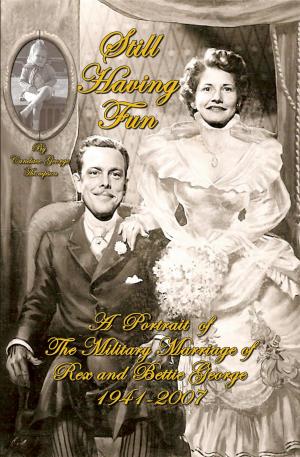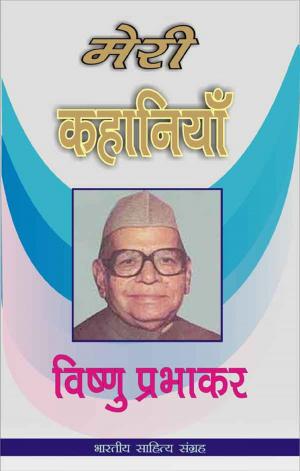| Author: | B. G. Brainard | ISBN: | 9781370677177 |
| Publisher: | B. G. Brainard | Publication: | April 12, 2018 |
| Imprint: | Smashwords Edition | Language: | English |
| Author: | B. G. Brainard |
| ISBN: | 9781370677177 |
| Publisher: | B. G. Brainard |
| Publication: | April 12, 2018 |
| Imprint: | Smashwords Edition |
| Language: | English |
Jeremiah was born in the town of Anathoth and his father Hilkiah was a Jewish priest. When Josiah became king of Judah, his father was summoned to minister at the temple in Jerusalem. When he was twelve, Yahweh commissioned Jeremiah to be a prophet. He argued he was too young and did not know how to speak. The Lord said to not be afraid for he would put his words in his mouth and he would be a prophet to the nations. Then he touched Jeremiah's mouth. While in scribal school, Jeremiah met Baruch, who became his best friend and recorder of God’s messages to the people. The character traits and practices Jeremiah was to acquire were to include not being afraid, standing up to speak, speaking as told, and going where sent. At this time King Josiah began to assert the independence of Judah, during the waning power and influence of the Assyrians. God told Jeremiah to prophesy regarding Jerusalem's destruction at the hand of invaders from the north due to the people being unfaithful to the laws of the covenant. For they had forsaken the God of Israel by worshiping Baal on every high place, and gone so far as to offer their children as a burnt offering on those altars, which was something God had neither considered nor commanded them to do. After Jeremiah’s father died and his mother moved back to Anathoth, Jeremiah went to live with his mother’s friend and near relative, Huldah the prophetess, and her husband Shallum, keeper of the wardrobe, who lived in the Second Quarter of Jerusalem. The people deviated far from God and continually broke his covenant, which caused God to withdraw his blessings. Jeremiah was called to proclaim to the people that their punishment would result in God bringing on them war, starvation, and disease until they were completely destroyed from the land that he had given them and their ancestors. The priest Pashur, a temple official in Jerusalem had Jeremiah beaten and put in the stocks at the Upper Gate of Benjamin for a day. Afterwards, Jeremiah laments over the difficulty of speaking the word of God, becoming a laughingstock, and target of mockery. He confesses that when he did try to shut the word of the Lord up inside him and to not mention the name of God, the word became like fire in his heart and he could not hold it in. But the king’s reforms could not save Judah and Jerusalem from destruction, because of the sins of Manasseh, Josiah’s grandfather, and the resumption of Judah’s idolatrous ways. The yearning of the nation for false gods after Josiah's death was such that the people quickly returned to the worship of the gods that are not gods of the surrounding nations. Then during the reign of King Zedekiah, the Lord instructed Jeremiah to make ox yokes for the representatives from the surrounding countries of the message that the nations would be subject to the yoke of the king of Babylon and his people and to wear one himself. The false prophet Hananiah opposed Jeremiah's message. He took the yoke off of Jeremiah's neck, broke it, and prophesied to the priests and all the people that within two years the Lord would break the yoke of the king of Babylon. The Lord told Jeremiah to tell Hananiah that he broke the yoke of wood, but he would replace it with a yoke of iron under the king of Babylon. Jeremiah continued to reveal the sins of his people and to preach the coming consequences of their idolatry. When Nebuchadnezzar king of Babylon successfully sieged Jerusalem, Jeremiah told the people to submit, go into exile, and all would go well with them. The obstinate Judeans refused to listen to what Yahweh Almighty had to say through Jeremiah the prophet and did their best to do away with him. Nevertheless, he faithfully continued to preach after the fall of Judah and Jerusalem that their God would restore them to the land of their ancestors.
Jeremiah was born in the town of Anathoth and his father Hilkiah was a Jewish priest. When Josiah became king of Judah, his father was summoned to minister at the temple in Jerusalem. When he was twelve, Yahweh commissioned Jeremiah to be a prophet. He argued he was too young and did not know how to speak. The Lord said to not be afraid for he would put his words in his mouth and he would be a prophet to the nations. Then he touched Jeremiah's mouth. While in scribal school, Jeremiah met Baruch, who became his best friend and recorder of God’s messages to the people. The character traits and practices Jeremiah was to acquire were to include not being afraid, standing up to speak, speaking as told, and going where sent. At this time King Josiah began to assert the independence of Judah, during the waning power and influence of the Assyrians. God told Jeremiah to prophesy regarding Jerusalem's destruction at the hand of invaders from the north due to the people being unfaithful to the laws of the covenant. For they had forsaken the God of Israel by worshiping Baal on every high place, and gone so far as to offer their children as a burnt offering on those altars, which was something God had neither considered nor commanded them to do. After Jeremiah’s father died and his mother moved back to Anathoth, Jeremiah went to live with his mother’s friend and near relative, Huldah the prophetess, and her husband Shallum, keeper of the wardrobe, who lived in the Second Quarter of Jerusalem. The people deviated far from God and continually broke his covenant, which caused God to withdraw his blessings. Jeremiah was called to proclaim to the people that their punishment would result in God bringing on them war, starvation, and disease until they were completely destroyed from the land that he had given them and their ancestors. The priest Pashur, a temple official in Jerusalem had Jeremiah beaten and put in the stocks at the Upper Gate of Benjamin for a day. Afterwards, Jeremiah laments over the difficulty of speaking the word of God, becoming a laughingstock, and target of mockery. He confesses that when he did try to shut the word of the Lord up inside him and to not mention the name of God, the word became like fire in his heart and he could not hold it in. But the king’s reforms could not save Judah and Jerusalem from destruction, because of the sins of Manasseh, Josiah’s grandfather, and the resumption of Judah’s idolatrous ways. The yearning of the nation for false gods after Josiah's death was such that the people quickly returned to the worship of the gods that are not gods of the surrounding nations. Then during the reign of King Zedekiah, the Lord instructed Jeremiah to make ox yokes for the representatives from the surrounding countries of the message that the nations would be subject to the yoke of the king of Babylon and his people and to wear one himself. The false prophet Hananiah opposed Jeremiah's message. He took the yoke off of Jeremiah's neck, broke it, and prophesied to the priests and all the people that within two years the Lord would break the yoke of the king of Babylon. The Lord told Jeremiah to tell Hananiah that he broke the yoke of wood, but he would replace it with a yoke of iron under the king of Babylon. Jeremiah continued to reveal the sins of his people and to preach the coming consequences of their idolatry. When Nebuchadnezzar king of Babylon successfully sieged Jerusalem, Jeremiah told the people to submit, go into exile, and all would go well with them. The obstinate Judeans refused to listen to what Yahweh Almighty had to say through Jeremiah the prophet and did their best to do away with him. Nevertheless, he faithfully continued to preach after the fall of Judah and Jerusalem that their God would restore them to the land of their ancestors.















